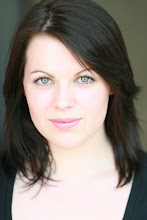Whilst looking into the professional ethics and codes of conduct that surround my industry I have found that perhaps I already knew more than I first thought. True I may not have known the theory behind it or why we behave in such a way, but I do know how to behave in a professional environment.
I have found the many theories I have studied to be useful in various ways, but each have now been joined together in order to form the rounded view I now believe I have. I think that my personal ethics have a large impact on the way I approach my professional ethics. Although I am not necessarily religious or particularly set on a certain way of beliefs, I think that this only enhances my ability to encompass other peoples views into my own. I am always looking to broaden my outlook on life and I am more than willing to listen to others speak and take from it what I find valuable and leave the rest without discrimination.
The times where personal beliefs contradict with professional ones can be impossible to handle for example; I don’t believe that the way you look makes you a better person or performer, but it is so important to the Performing Arts industry that I have to conform. I also don’t believe that dressing provocatively will make you a better dancer but I can see why it could help you look more confident and therefore more likely to get a job!
As I am not overly religious I tend to use the law as a basis for my ethics. I think this fits in with the consequentialist way of thinking and J.S. Mills theory of ‘the greater good’ for example; cutting funding to a small school with a poor success rate and splitting it between children in a better school with more prospects would be fair under the view of consequentialism. Unfortunately it’s a dog eat dog world out there and I believe that mob mentality will always prevail.
The case study into the ethics on photography where Carter left a child to die is very poignant. I think it’s such strong evidence that you can only follow professional ethics as far as your conscience will allow you. Had he have been able to live with his decision nobody could have really questioned his code of conduct as a photographer, he was after all only there to observe. But as a human being he knew personal ethics should have taken over and the fact that they didn’t led him to take his own life.
I have found that during my research I am now able to separate personal and professional ethics if. I know I won’t be able to sleep a night because of a professional decision I’ve made then I wont take that route in the first place. Have found this way of thinking very much supported by theoretical normative ethics, what is morally acceptable to you should be able to influence professional decisions.
The question “who stands to benefit most from your research?” is one that I intend to keep close to mind when carrying out my inquiry. I want to prove to people that by making the rich richer they are in turn making the poor poorer. I am aware that there are always anomalies with any set of results and I wont be afraid to publish these. The main aim of my research will be to help the talented performers of tomorrow to get the funding they deserve in order to keep their dream alive without discrimination.
I think that the codes of conduct put forward by the British Educational Research Association to be very valid and I shall definitely be following them throughout my inquiry. I shall also work closely with the Data Protection/Human Rights/Children’s and Equality Acts and hope that all these combined with my own personal and professional ethics should help me to conclude a fair and detailed inquiry which leads to valuable data being produced.

No comments:
Post a Comment